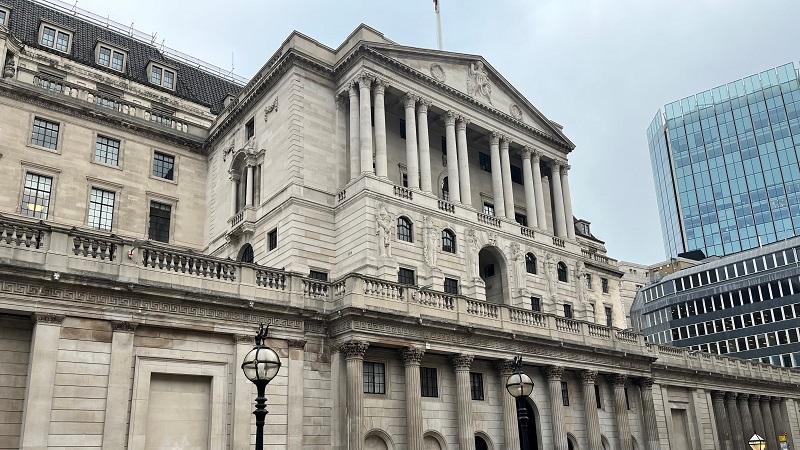Inflation in the UK economy unexpectedly fell to 6.7% on an annualised basis in August, the Office for National Statistics has reported.
The figure significantly undershot the forecast consensus of a rise to 7.1 % from July’s figure of 6.8%.
The fall in the headline number also comes despite rising oil prices and the associated impact on fuel costs. Core inflation, which removes volatile food and energy costs, fell more dramatically to 6.2% from 6.9% a month earlier.
It suggests the economy is slowing faster than thought under the weight of relatively high interest rates, and raises the possibility the Bank of England has already tightened conditions enough. Rates may in fact already be too high once time lags are taken into account.
The Bank’s monetary policy committee now faces a finely balanced call when it meets tomorrow (21 September). Until today’s data release it was considered very likely the MPC would raise again by a quarter point to 5.5%, but that is now far from certain.
See also: Weekly outlook: Fed and Bank of England set to make interest rate decisions
Danni Hewson, AJ Bell’s head of financial analysis, commented: “Just like that what had seemed like a sure thing is cast into doubt. Moments after the shock inflation number was released, the market expectation of a Bank of England rate rise began to plummet.
“Within half an hour what had been a pretty nailed on 80% expectation of another quarter percentage point hike fell to a 50/50 chance that MPC members would vote to press pause on this rate hiking cycle, at least for now.
“After a slew of profit warnings from UK PLC yesterday and a GDP figure that sat badly for the UK economy, the news that inflation has continued to cool is likely to give policy makers enough wiggle room to adopt a wait and see strategy. It’s important to remember the impact of these rate hikes is a slow burn.”
Neil Birrell, CIO at Premier Miton Investors, is still leaning towards a rate rise coming tomorrow. “This morning’s better-than-expected UK inflation data may provide some relief for the Bank of England,” he said. “While this may not be enough of a fall to prevent a further increase in rates, core inflation coming in much lower than expected is good news.
See also: Unemployment rises but strong wage growth puts Bank of England in a quandary
“Last month there was a bit of good news on UK inflation and more interest rate sensitive UK financial assets had a sharp bounce, showing that there are buyers waiting for a catalyst. It will be interesting to see if the same reaction will follow this time.”
Victoria Scholar, head of investment at interactive investor, added: “Inflation is showing encouraging signs of coming down. The post-Covid supply chain bottlenecks have eased, last year’s energy crisis after Russia’s invasion of Ukraine has calmed down and rising interest rates from the Bank of England, as well as fiscal prudence from the government, have helped to ease price pressures.
“However rising oil prices is a key risk to watch in terms of the UK’s disinflationary trajectory, with further gains for brent and WTI potentially adding further upward pressure for motor fuel prices and in turn UK CPI.”
–
PA EVENT: Autumn Congress, September 27th– 29th | RSVP via email
Hosted at The South Lodge Hotel. Transport and accommodation will be provided for the duration of the event.
Our Autumn Congress will serve as a comprehensive platform for discussing the key trends, challenges, and innovations shaping the wealth management landscape. It will bring together thought leaders and industry professionals for enlightening discussions and networking opportunities. Register link |
Sponsors include Alliance Bernstein, Alger, Boston Partners, Baillie Gifford, CCLA, Janus Henderson, GAM, Jupiter AM and much more! Please see the full line-up on our website: AC2023










